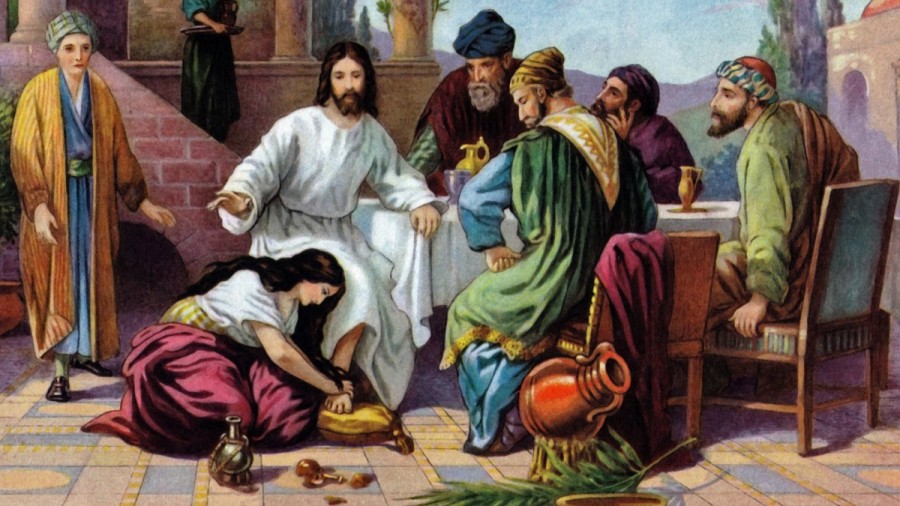
By Julio Torres, one of this year’s Poverty Initiative Fellows.
The opinions expressed here are not necessarily those of the Kairos Center or its staff. For more on re-interpreting “the poor will always be with you,” read Rev. Dr. Liz Theoharis’ blog post.
On August 27, 2015 during the week of orientation for new students of Union Theological Seminary, there was a gathering. The setting and scene for this reflective article was the Kairos Center office around the main table where thirteen souls who hunger for justice met. Two were staff from the Center, one an intern and ten were new students. The topic of conversation, using Freedom Church of the Poor Model, was Matthew 26:1-13 with an extra focus on 6-13: “The poor will always be with you.”
My reflection will discuss some general conversation points, my experience with the Bible, and liberation theology.
Prior to going into the scholarship of one of the hosts, Rev. Dr. Liz Theoharis, we discussed what we saw in the text. Quite a number of things were discussed: judgement passed on the poor, strategies for community building, ignoring issues of the poor, not naming women even though she is to be remembered, and no matter the level of society everyone deserves rituals.
Bible studies and learning from someone’s exegetical work can have such an impact on people but especially those who are not trained in the Bible academically. As we continued to discuss the “the poor will always be with you” passage/pericope with incoming students to UTS, what stuck out to me first was the experience of all the new students: their interactions and experience with the struggle of poverty. During that time, just one hour together, I saw them connect and engage with each other and the Bible. I wanted to hear what they had to say about poverty and the Bible as much as I wanted to hear from Liz Theoharis and Larry Cox, co-directors of the Kairos Center.
I feel that this type of Bible study is necessary as it can get to the experience of the poor and reach across race, sex, ethnic and other forms of division of identity. The only issue I see with the majority of liberation theologies is that they focus on the specific struggle they are in and sometimes it is not understood by anyone outside of that audience. But a Liberation Theology of the Poor can cut through these lines. In my one class, I saw how the various liberation theologies had a tremendous impact on everyone. Yet it also divided several people. Maybe that is necessary. With this Bible study however, I saw unity, I saw further driven purpose, I saw the possibility of poor people from all walks of life from different parts of the globe uniting against the true oppressive force, which can be said to have impacted the authors of all liberation theologies I have read and studied. Maybe I am an idealist, that’s probably why I am in the seminary.
To discuss the passage we had to talk about a multitude of topics. Crucifixion, leprosy, day laborers, anointing, poverty pimps, the Poor People’s Campaign, Deuteronomy, and Isaiah were all things we wrestled with in trying to understand the text. My take away and personal feelings were that if we continue to choose to simply throw money at the situation of poverty, the poor will be with you, because the problem that produced their poverty wasn’t solved. I may be preaching to the choir, but 2000 years give or take a hundred years after this text was written, the problem remains. Like a virus it adapts to various cures, requiring a new solution and never going away. From this passage we learn of the agency of the outcast and unnamed to anoint the salvation of the universe through Jesus. Even I, the non-Christian, the Pantheist recognize that those who are deemed powerless by those in power, are not powerless.
They have the power to save themselves, they have the right to luxury and do not need to be treated with any less dignity than one who owns much property. The struggle will be won by those coming out of the ghetto, the dispossessed, and the disenfranchised. Jesus knew this, as did the authors of the various books, epistles, etc., of the Bible. The idea that poverty would not be solved by selling the rich perfume, and that it could not be solved by the powerful in Jerusalem, is akin to the issues in today’s society which are not being solved by Wall Street, the government, or wealthy corporations. The poor are the agents of their salvation. While we may even die in the process, the world can be a better place as long as we find that sense of divine agency within us.
“Once upon a time the poor existed.” That statement is what I hope to be the case in the future: it is the long term goal that I and others work for. The myth of the poor, to be told with the phrase: “In the dawn before the unifying of humanity, there were once the poor and oppressed.” Matthew 26:1-13 shows the various struggles so eloquently in a way that I never truly understood before. We came together, read the passage, discussed how we felt and what we saw, read it again, repeated and were guided by the scholarship of Liz and Larry. I do not name specific comments made by the students because I do not have their permission. But the notes I took that day I still reflect on and will continue to reflect on. Like the woman of the story, not named, I will remember them and fight in the struggle with their story on my hearts. In solidarity we sat, and in the future in solidarity we will stand.